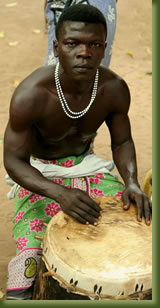

Kenya Travel Information
Do I need a Visa?
Do I need any vaccinations?
What is the latest government travel advice?
What will the weather be like?
What are the currency and banking details?
What languages are spoken in Kenya?
What is the time difference?
When are the public holidays?
What is the electric power supply?
What type of plugs are used?
Kenya Visa and Passport requirements for UK passport holders
All information is subject to change. Visa information should be checked with the relevant embassy. Passport valid for three months from date of entry is required by all. Multiple-entry visas may only be issued to nationals of the United Kingdom.
Types of Visa and Cost
Entry: £30 (single-entry); £60 (multiple-entry). Transit: £10.Note: If the application is referred to Immigration in Nairobi, an additional £7 will be payable. Nationals of Rwanda will receive visas gratis.
Validity
Single-entry: up to three months from date of issue;Multiple-entry: up to 12 months from date of issue.
Renewals (up to six months) or extensions can be made at Immigration in Nyayo House, Uhuru Highway, Nairobi or at Kisumu and Mombasa. The period of stay in Kenya can be given at the port of entry (maximum three months).
Application Requirements
- Valid passport with at least one blank page
- Completed application form
- One recent passport-size photo
- Fee, payable by postal order or bank cheque if applying by post, or cash if applying in person
- Holiday itinerary or business letter
- For postal applications, include a self-addressed stamped, registered envelope for return of passport and daytime telephone number
Working Days Required
Three (applying in person) or one week from date of receipt (postal applications). If the visa has to be referred to Nairobi it will take at least eight weeks.Passport and Visa Information
UKKenya High Commission
45 Portland Place
London
W1B 1AS
Tel: (020) 7636 2371/5
Website: www.kenyahighcommission.net
Opening hours:
Mon-Fri: applications 0930-1400, collections 1400-1530.
USA
Embassy of the Republic of Kenya
2249 R Street, NW
Washington DC 20008
Tel: (202) 387 6101.
Website: www.kenyaembassy.com
Vaccination Requirements
This information is intended as a guide only. Please check with the relevant authority and your GP for the latest advice and requirements.Recommended immunisations for your journey:
Polio
Polio is a viral disease, usually transmitted via contaminated food and water. An effective vaccine is available; boosters are usually given every 10 years for those travelling into risk areas.
Hepatitis A
Hepatitis A virus, usually transmitted via contaminated food and water, attacks the liver and may lead to jaundice and a prolonged illness. Modern hepatitis A vaccines are highly effective and, if boosted at 6 - 12 months, provide long term (10 years or more) protection.
Typhoid Fever
When ingested, the bacteria which give rise to typhoid fever, pass through the intestine wall and cause a high fever which may progress to coma. An injected Vaccine is available which is boosted every 3 years. Vaccination is generally less important for short stay travellers staying in good accommodation.
Tetanus
This serious bacterial disease is usually contracted following contamination of wounds (especially deep puncture wounds). The inactivated vaccine is boosted every 10 years. After 5 doses, routine boosters are no longer required but travellers to areas with poor medical facilities should be "in date". The UK Department of Health recommend the use of combined tetanus/diphtheria/polio vaccine when tetanus boosters are indicated. In Australia the combined tetanus/diphtheria/acellular pertussis vaccine should be used.
Yellow fever
The yellow fever virus is transmitted by the bite of an infected mosquito. This disease may only affect part of the country you are visiting, check with your travel health adviser. The risk is highest in rural areas. We do not advise yellow fever immunisation in children under 9 months of age. A certificate will be issued following immunisation which is valid for 10 years.
Malaria risk exists throughout the year in the whole country. There is usually less risk in Nairobi and in the highlands (above 2500m/8200ft) of the Central, Eastern Nyanza, Rift Valley and Western Provinces. The predominant falciparum strain has been reported as highly resistant to chloroquine and resistant to sulfadoxine/pyrimethamine. Mefloquine, doxycycline or malarone are the recommended prophylaxis.
Government Travel Advice
For the latest government travel advice, follow this link to theForeign & Commonwealth Office
Type your destination into the quick search facility.
Climate
Since Kenya is on the equator, the climate remains pretty stable throughout the year. The coastal areas are tropical, but tempered by monsoon winds. The lowlands are hot and mainly dry. Temperatures in Nairobi, the Highlands and other mountainous areas are modified by the altitude; days are generally sunny and hot but nights can be cool. Near Lake Victoria, the temperatures are much higher and rainfall can be heavy.On the coast, beachwear is sufficient for day-time in hotels, with lightweight cottons or linens worn to meals or when walking or shopping. Evenings are cool; therefore warm clothing is necessary after sunset, especially on safari. Rainwear is advisable between March and June and October and December. Incidentally, nudity on the beaches or in any public place is against the law in Kenya.
Summary of average yearly weather data for Nairobi
Month |
Low (°C) |
High (°C) |
Sunshine (Hours) |
Rainfall (mm) |
Humidity (%) |
|---|---|---|---|---|---|
Jan |
12 |
25 |
9 |
38 |
74 |
Feb |
13 |
26 |
9 |
64 |
74 |
Mar |
14 |
25 |
9 |
125 |
81 |
Apr |
14 |
24 |
7 |
211 |
88 |
May |
13 |
22 |
6 |
158 |
88 |
Jun |
12 |
21 |
6 |
46 |
89 |
Jul |
11 |
21 |
4 |
15 |
86 |
Aug |
11 |
21 |
4 |
23 |
86 |
Sep |
11 |
24 |
6 |
31 |
82 |
Oct |
13 |
24 |
7 |
53 |
82 |
Nov |
13 |
23 |
7 |
109 |
86 |
Dec |
13 |
23 |
8 |
86 |
81 |
Summary of average yearly weather data for Mombasa
Month |
Low (°C) |
High (°C) |
Sunshine (Hours) |
Rainfall (mm) |
Humidity (%) |
|---|---|---|---|---|---|
Jan |
23 |
32 |
8 |
25 |
71 |
Feb |
24 |
32 |
9 |
15 |
70 |
Mar |
24 |
32 |
9 |
58 |
71 |
Apr |
24 |
31 |
8 |
200 |
76 |
May |
22 |
29 |
6 |
320 |
79 |
Jun |
22 |
29 |
8 |
108 |
77 |
Jul |
21 |
28 |
7 |
88 |
75 |
Aug |
21 |
28 |
8 |
60 |
78 |
Sep |
21 |
29 |
9 |
65 |
73 |
Oct |
22 |
30 |
9 |
80 |
73 |
Nov |
23 |
31 |
9 |
92 |
73 |
Dec |
23 |
31 |
9 |
57 |
73 |
Currency and Banking
Currency
Kenya's unit of currency is the Schilling (KSh) divided into 100 cents. Notes are in denominations of KES1000, 500, 200, 100 and 50. Coins are in denominations of KES20, 10 and 5.Currency Exchange
The easiest currencies to exchange are US Dollars, Pounds Sterling and Euros. Many businesses will accept these currencies as payment; however any change will be given in Schillings.Currency can be exchanged at the major banks, bureaux de change or authorised hotels. The banks at Jomo Kenyatta International Airport and Moi International Airport have 24-hour exchange services.
Banking hours vary; however banks in major towns generally open from 9am to 2pm, Monday to Friday and 9am to 11am on the first and last Saturday of the month.
For the latest rate of exchange follow this link: www.xe.com/ucc
Credit / Debit Cards and ATM's
Visa, MasterCard, Diners Club, and American Express are all widely accepted. Major hotels and restaurants now also accept payment by credit card. There are over 140 ATMs.Travellers Cheque Advice
These can be changed at banks, and are widely accepted. To avoid additional exchange rate charges, travellers are advised to take traveller's cheques in US Dollars or Pounds Sterling.Languages
Swahili is the national language and English is the official language.German or Italian are widely spoken by locals employed within the tourism industry.
There are over 42 ethnic languages spoken, including Kikuyu and Luo.
Time Difference
Kenya is 3 hours ahead of GMT.Public Holidays
Holidays 2006Oct 10 : Moi Day
Oct 20 : Kenyatta Day
Oct 22-24 : Eid al-Fitr (End of Ramadan)
Dec 12 : Independence Day
Dec 25-26 : Christmas
Holidays 2007
Jan 1 : New Year's Day
Apr 6 : Good Friday
Apr 9 : Easter Monday
May 1 : Labour Day
Jun 1 : Madaraka Day
Electrics
220/240 volts AC, 50Hz. Electrical plugs are UK-type square three-pin.
Bayonet-type light sockets exist in Kenya.

